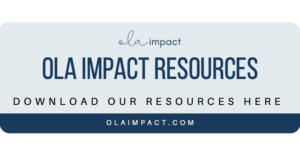Sustainable companies are often focusing on marketing for good – to empower consumers to take action through their choices, creating long-term growth, and impacting the community around them positively. Often, their focus is not on only profit, but more on doing good instead.
One of the most important factors of marketing for good is to be transparent. Nowadays, consumers have hundreds of brands to choose from and that’s why being truly transparent is highly recommended. This will not only make consumers trust your brand but also increase customer loyalty. It has been studied that 94% of those surveyed are more likely to be loyal to transparent brands. Also, 56% of respondents would stay loyal to a brand for life if it was completely transparent.
In this article, we’ll dive into ethical marketing and explain how to be more transparent in your marketing actions.

Importance of transparency
Most importantly, by being a transparent business you will build trust, and make your employees feel that they’re working for a company with higher ethical standards. It will also help to engage them and make them committed to your company’s vision. More and more employees are nowadays demanding transparency from their workplace as the environmental and social issues are increasing and therefore it is highly important for the company to provide required information.
From the consumer’s perspective, business transparency increases trust and ensures all expectations are fulfilled. Consumers increasingly want to know more detailed information about the company’s material sources, manufacturing process, corporate social responsibility, and other business actions. When the business is truly transparent of its action, it is easier for consumers to trust your brand. This will increase the consumer experience. After all, only satisfied consumers stay loyal.

How to be more transparent
Establish core values
Before taking any other actions to increase your business transparency, make sure you have established certain core values you want to follow. These values should be something you believe in and that will drive your business to grow. The most important part is to be consistent and to make sure you follow the chosen values in all your business actions from product development to hiring employees.
Align customer expectations with reality
Never promise your consumers something you cannot deliver. Make sure to be realistic and transparent with your audience about what they will be getting when they purchase your products or services. Making promises you cannot keep will only harm your business.
Share business performance
Consider sharing the performance of your business with your employees and partly with your audience as well. Share all the important information with all your employees and involve them in the process of making improvements. No matter if the performance has been good or bad, sharing it with your employees transparently will keep them engaged and more informed about what is happening in the company.
Make your social media a community
Your social media channels are a great way to share your business transparency with your audience. Through these channels, you will also be able to increase your audience and build a genuine connection with all your consumers.
Respond positively to honest feedback
No matter the quality and type of feedback you get, always respond positively. Remember that even if you do your best, not everyone will be happy and satisfied with your services. The most important thing to do is to thank them for the feedback and to make them feel heard. After all, you might always learn something from the feedback you receive, even if it’s unexpected.
Examples of transparent businesses

The American outdoor clothing retailer Patagnonia, shows transparency through its supply chain. Patagonia is taking a proactive approach on taking the responsibility on itself to make sure no social and environmental harm is being caused in the making of its products. To share their transparency with their audience, Patagonia has shared a project called “Footprint Chronicles” with their consumers. Whenever you buy something from the Patagonia website, you have access to a series of these Footprint Chronicle videos directly related to the product you are looking at. These videos show each step of the supply chain, including all textile mills and sewing factories used in creating the item.

Trace is a digital platform helping climate conscious individuals and businesses measure, reduce and offset their carbon footprint and track their impact over time through simple and engaging digital tools. Trace is on a mission to remove the barriers to becoming carbon neutral by making it accessible, effective and rewarding to take action.

80 Acres Farm is building a different kind of farm to grow food. A farm that doesn’t need sun, soil or favorable weather and where pesticides have no place—because everything’s indoors, monitored and controlled. 80 Acres Farm uses robots to do the heavy lifting, so the humans can focus on growing the freshest, most nutritious food possible. This farm can produce over 300 times more food than an ordinary farm. With 100% renewable energy and 97% less water.
How to use marketing for good
Being truly transparent is a huge part of the concept of marketing for good. Marketing for good refers to marketing activities that are focused on doing good on a social or environmental level and not only profiting money. Companies who want to do other than make money should implement this term in their marketing strategy in order to deliver products and services in a way that the audience understands the core values of the company.
Author: Oona Yletyinen


